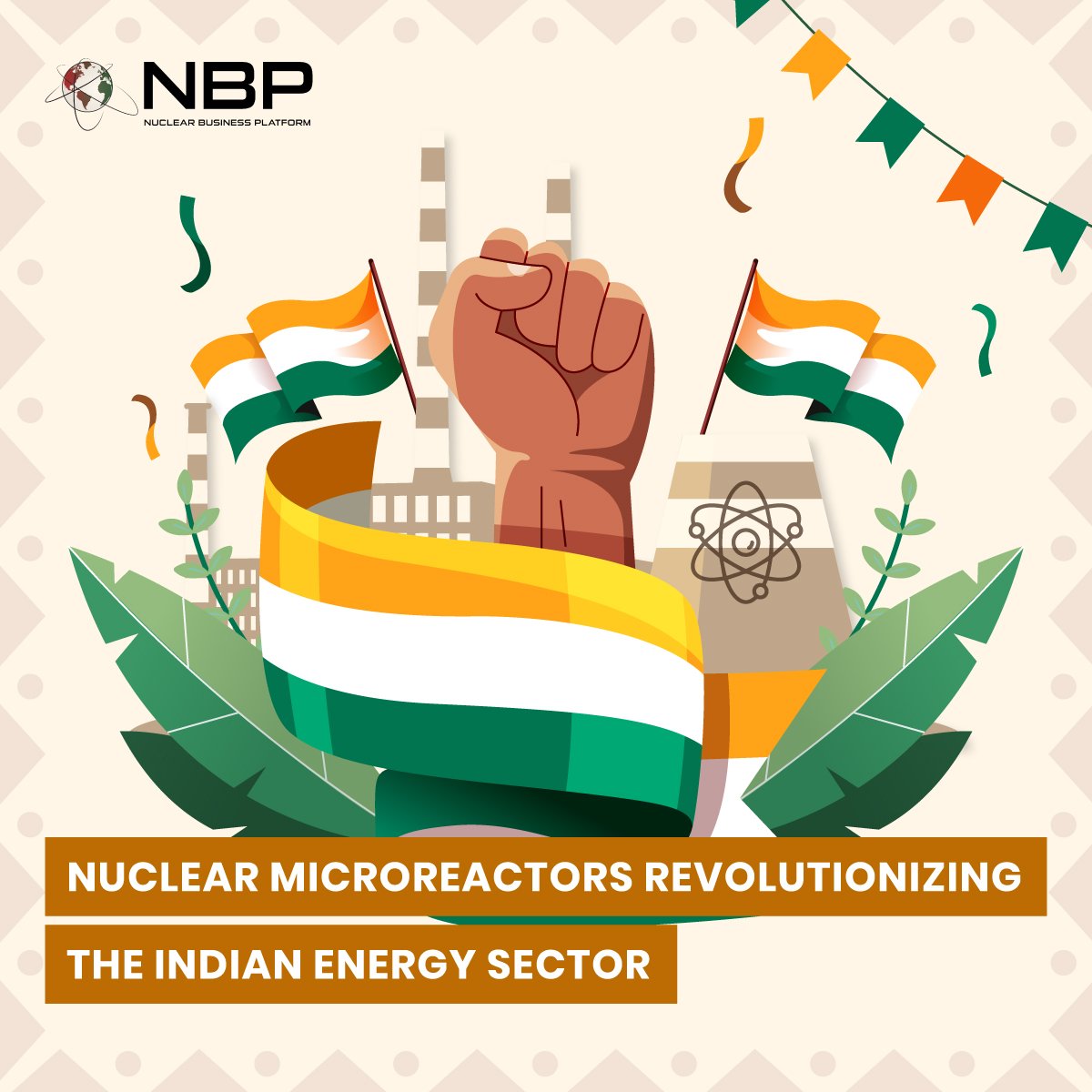Nuclear Microreactors Revolutionizing the Indian Energy Sector
India's vast and diverse landscape is set to undergo a significant energy transformation. The country's energy market is grown for innovation, and nuclear microreactors present a promising technology that could revolutionize the sector. Nuclear microreactors are very small reactors usually generating less than 30 megawatts of electricity (MWe). With their compact size, high efficiency, and low carbon emissions, these power sources are an ideal solution to address India's urgent energy challenges. In this report, we explore the potential applications of nuclear microreactors in India and the lucrative business opportunities they offer.
Empowering Remote Communities
Remote communities in India have long been deprived of reliable access to electricity. Large electricity grids seldom reach these areas, and the logistics of delivering fossil fuels prove cumbersome and costly. Nuclear microreactors offer a lifeline. Their deployment can establish self-sufficient energy sources, creating new markets for energy providers. The result will be affordable and accessible energy, which will act as a catalyst for improved living standards and job creation in remote regions.
Catalyzing Mining Operations
Mining sites, pivotal to India's industrial growth, consume substantial energy resources. The reliance on fossil fuels not only strains operational costs but also contributes to environmental degradation. Nuclear microreactors provide a reliable, green alternative, reducing both costs and environmental impact. This presents an enticing business opportunity for nuclear technology companies while enhancing operational efficiency and sustainability in the mining sector.
Empowering Industrial Parks and Smart Cities
India is home to numerous industrial parks and is launching an initiative to develop smart cities across the country. These areas have high energy demands that could be met by nuclear microreactors. By providing a reliable and low-carbon power source, nuclear microreactors could support India’s industrial growth and the development of its smart cities. This could lead to improvements in energy efficiency, reductions in greenhouse gas emissions, and new business opportunities in the energy sector.
Electrifying Railway Networks
Indian Railways is one of the largest rail networks in the world and is currently undergoing large-scale electrification. Nuclear microreactors could provide the power needed for this process, offering a low-carbon alternative to traditional power sources. This could support India’s efforts to reduce its carbon emissions and contribute to the development of a more sustainable transport infrastructure.
Powering Electric Vehicle Charging Stations
As the electric vehicle (EV) market in India gains momentum, the need for charging infrastructure intensifies. Nuclear microreactors can provide the requisite power, fostering EV market growth and creating synergy between the energy and automotive sectors. Faster charging times and enhanced availability can further accelerate the transition to electric mobility, benefiting both consumers and businesses.
Revolutionizing District Heating
Nuclear microreactors can revolutionize district heating systems in India. These systems distribute heat generated in a centralized location through a system of insulated pipes for residential and commercial heating requirements. Nuclear microreactors can provide the heat source for these systems, offering a low-carbon alternative to traditional heating methods. This could lead to significant reductions in greenhouse gas emissions and open up new business opportunities in the energy sector.
Replacing Diesel Generators
DG sets or diesel generators are commonly used in India to provide electricity in areas where there is no access to the power grid or during power outages. However, they rely on diesel fuel, which is not only costly but also produces greenhouse gases. Nuclear microreactors can serve as an alternative to DG sets, providing a more sustainable and reliable power source. This could lead to cost savings and environmental benefits, as well as new business opportunities in the energy sector.
Emergency Power Resilience
In the event of a disaster or power outage, nuclear microreactors can provide an emergency power supply. This could be particularly useful in areas prone to natural disasters or with unreliable grid infrastructure. The deployment of microreactors for emergency power supply could lead to increased resilience in India’s power infrastructure and open up new markets for nuclear technology providers. Furthermore, the use of nuclear microreactors as an emergency power supply could improve response times during disasters and reduce the impact on affected communities.
Energizing Space Exploration
The Indian Space Research Organization (ISRO) has plans to use nuclear energy for space exploration. Nuclear microreactors can provide reliable power for long-duration missions, making it possible to explore more distant locations. This could open up new opportunities for space research and exploration, and potentially lead to significant scientific discoveries.
In conclusion, nuclear microreactors have the potential to revolutionize India's energy sector. Their seamless integration with renewables in microgrids, longer core life of up to 10 years without refueling, and ability to be easily removed and exchanged for new ones make them highly suitable. As India strives for sustainable, accessible, and efficient energy solutions, these microreactors are poised to redefine the nation's energy landscape and drive it towards a greener and more prosperous future.
The 4th edition of India Nuclear Business Platform (INBP) took place in Mumbai this 10-11 October. The industry meeting featured all they officials and players across the Indian nuclear supply chain. Official event partners of this meeting were India’s Department of Atomic Energy and NTPC. Video recordings and presentations from the conference can be obtained via this link


